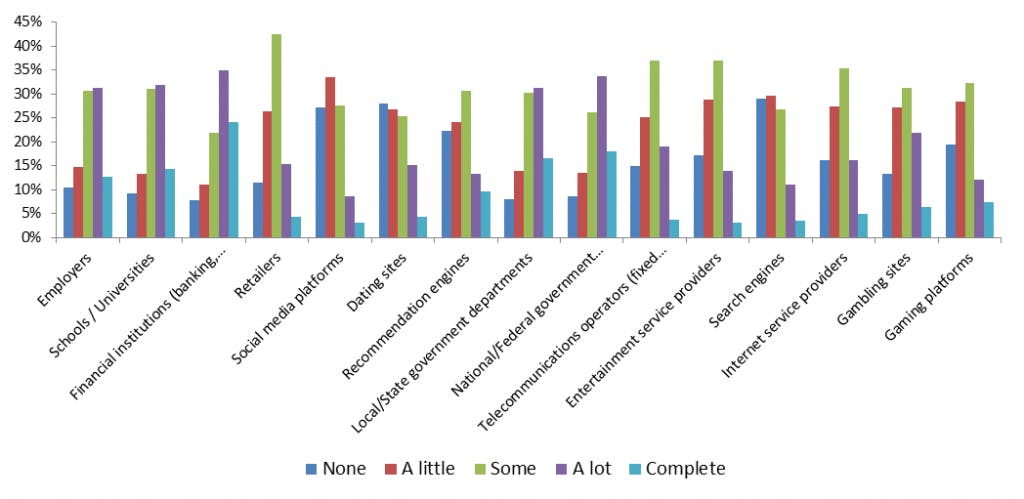Online privacy company Intercede has released the results of a depressing survey of millennials and cybersecurity.
The study, which analyzed the responses of 2,000 millennials (18-to-35-year-olds), revealed that these young people don’t trust the Internet with any important information except their names, addresses, and other basic data. Twenty-three percent of respondents said that they didn’t care about giving away this personal information because they believed that governments and corporations already had it.
The graph below illustrates levels of trust in different institutions. Note how tall the dark blue, red, and green bars—representing no trust, a little trust, and some trust—are in each case.
The only category that millennials trusted at a solid “some” level was the retail industry. Of the fifteen groups, only five received more complete” trust than “none.” Those were:
- National/Federal Government
- Local/State Government departments
- Financial institutions
- Schools/universities
- Employers
These five groups all have one thing in common: money, namely the possession of one’s Social Security number. But the financial institutions usually insure people against fraud, and it seems that millennials aren’t scared of their Social Security numbers being stolen anymore.
Instead of identity theft, it seems, young people worry most about personality theft. Gaming platforms, search engines, and social media sites all scored very poorly. Dating sites had the honor of being the only group in which “none” was the most common trust level.
It’s worth taking surveys from publicly traded online security companies with a grain of salt, but Intercede’s methodology does seem legitimate. Furthermore, Intercede only commission the survey; another firm—Atomik Research, which specializes in creating custom surveys for corporate research—conducted it.
A previous Intercede study found that only 6 percent of millennials put any faith in the password advice they got from websites, because they believed they’d be hacked no matter what.
H/T Intercede | Photo by Christiaan Colen/Flickr (CC BY SA 2.0)



